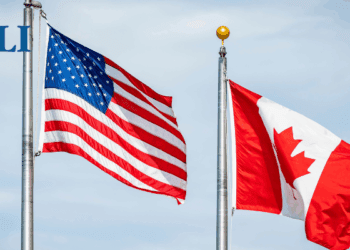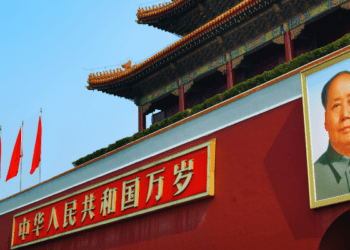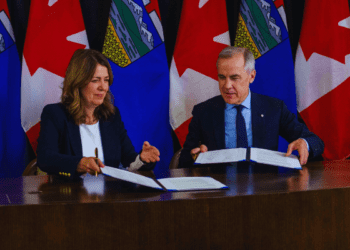MLI authors recommend ways to cut cost of cabotage, improve free trade in transport services
MEDIA RELEASE
OTTAWA, April 17, 2012 – The transport of goods in North America is slower and more expensive than it needs to be because of centuries-old trade practices that need to be revised, two authors argue in a Macdonald-Laurier Institute (MLI) commentary released today.
Authors Stephen Blank and Barry Prentice say that cabotage regulations create pervasive and extensive non-tariff trade barriers. Yet, while the Free Trade Agreement (FTA), the North American Free Trade Agreement (NAFTA) and the Security and Prosperity Partnership (SPP) addressed some trade-related transportation issues, cabotage regulations were left untouched.
The term cabotage refers to the requirement that the transport of goods within a country by truck, air or water transportation be carried out by a domestic carrier. Although domestic security is often cited as justification for their existence, the authors state the rules are usually instituted for political reasons – to protect domestic transport routes and the labour that runs them.
The inefficiency can be seen in the example of air carriers flying from a foreign city to Toronto via Vancouver. Under cabotage rules the foreign carrier is not allowed to pick up passengers at Vancouver and take them on to Toronto. This practice raises costs and wastes capacity.
“Dealing with cabotage illustrates the difficulty of moving beyond a ‘free trade’ agreement,” write Blank and Prentice. ” . . . It has been very difficult to build a coordinated effort among the NAFTA nations . . . to reduce these barriers.”
The authors provide industry-specific suggestions to reduce transportation restrictions:
TRUCKING: Often, the most efficient route for a truck is to travel in a triangular fashion to three destinations, picking up a new load for the home destination after dropping a cargo at another location. Cabotage regulations make this difficult because the base of the “triangle” always has to be in the domestic market. This means that more trucks are on the road wasting fuel, worsening congestion, generating unnecessary emissions, and running up costs. The authors therefore suggest a pilot project, called the “Open Prairies Proposal”, that would allow free trade (including eliminating cabotage rules) in freight transport for the U.S. and Canada throughout the prairie provinces and several upper great plains states.
SHIPPING: Create a single North American registry (or “flag”) for ships that would permit North American ship builders and operators to work on a continental scale. Alternately, there could be an agreement on mutual recognition of each others’ rules.
AIR: Create an integrated North American aviation market, which would permit “co-terminalization” (permitting a carrier to deliver goods to more than one airport in another country); and also permit airlines from the U.S. or Canada to establish airlines in the other country. The Open Skies Agreement of 1995 allowed for liberalized movement of passengers throughout North America, but did not give foreign air carriers cabotage rights for passengers or air cargo.
The authors also argue for a new forum to consider transportation matters and develop alternative policies: either a revived Canada-United States (or North American) Chamber of Commerce or a North American Commission on Freight Transportation.
“North America will never resemble the European Union,” the authors write, “but we can learn from the European experience.” The EU initiated discussions on a common transport policy in 1992, and has managed to ease cabotage restrictions, particularly in air and trucking. “We should be much more interested in what the Europeans have done, propose to do in the future, how they are doing it, and their successes and failures in doing so.”
The authors write that building support for free trade in transportation has to start with “an informed dialogue with governments.”
Stephen Blank is a Senior Fellow of MLI and of the Center for North American Studies, American University. Barry Prentice is professor of Supply Chain Management, Asper School of Business, University of Manitoba.
For more information or to arrange interviews, please contact Tripti Saha at tripti.saha@macdonaldlaurier.ca or call (613) 482-8327, ext. 105.
The Macdonald-Laurier Institute is the only non-partisan, independent national public policy think tank in Ottawa focusing on the full range of issues that fall under the jurisdiction of the federal government. www.macdonaldlaurier.ca




